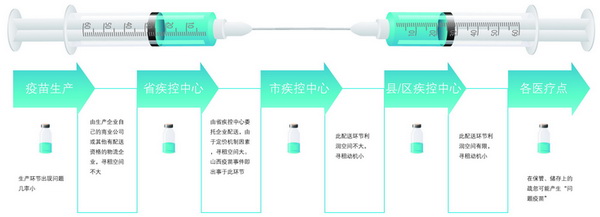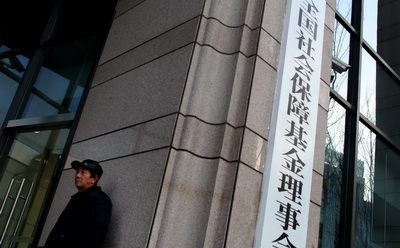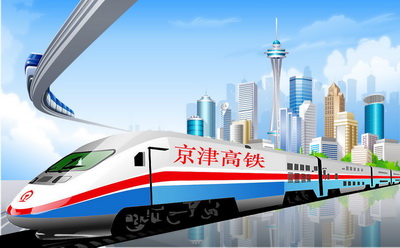

Highlights from the EO print edition, issue no. 463, April 5, 2010
Who Bribed Stern Hu?
News, cover
~ Two attorneys representing the Rio Tinto four revealed to the EO that Stern Hu, former head of Rio Tinto's China office, and his three colleagues would appeal their sentence to a higher court.
~ Additionally, one attorney revealed a list of China's steel mills that were involved in the trial of the Rio Tinto four; most are private steel mills.
~ The list includes Beijing-based Shougang Group, Shandong Laigang Group, Shandong Rizhao Group, Tianjin-based Rockcheck Steel Group, Hebei-based Guofeng Iron and Steel Company as well as a Sinopec trading company.
~ The Chinese steel mills involved will be handled separately through the judicial system, the EO has learned.
~ Founder of Rizhao Steel Du Shuanghua, who testified he paid bribes worth 9 million US dollars to Wang Yong, one of Rio Tinto's sale executives, has been ordered not to leave Shandong province, a person close the matter told the EO.
Original article: [Chinese]
Local Governments to Receive Larger Slice of Tax Revenue
News, cover
~ China's central government is planning to grant more rights to local governments so that they can gain more tax revenue. The central government is also considering raising taxes and then transferring the additional revenue to local governments.
~ Since the end of 2008 when China issued its four-trillion-yuan stimulus package, local governments have been suffering from an increasing shortage of capital due to pressure to make large investments but with few sources of revenue.
~ This has pushed local governments to finance projects through local financing platforms dominated by bank loans. This has caused great potential risks in the local finance system.
~ According to the reform plan, a proposed property tax will increase the future revenue of local governments. However, revenue from business tax, which was a local tax item, will be incorporated into the central government's taxation system.
Original article: [Chinese]
State Council Renews Attempt to Curb Overcapacity
News, page 3
~ China's State Council has recently issued a document to the National Development and Reform Commission (NDRC) and the Ministry of Industry and Information Technology (MIIT), requiring them to intensify efforts to curb overcapacity in ten industries such as power generation, coke, steel, non-ferrous refining, construction materials, textiles, light industry and the calcium carbide sector.
~ At press time, the document has yet to be made public; however, the NDRC and MIIT have begun laying out detailed work targets.
~ The MIIT required local governments to shut down 8,000 small coal mines and eliminate at least 50 million kilowatts of power generated by small-scale thermal power plants before the end of 2010. In addition, local governments have been ordered to close steel mills with blast furnaces smaller than 400 cubic meters before the end of 2011.
Original article: [Chinese]
New Rules Aimed at Reducing Risk of Local Government Debt Ineffective
News, page 4
~ The Ministry of Finance has drafted a notice forbidding local governments and public institutions from providing direct or indirect guarantees for enterprises or local financing platforms.
~ Though targeted at regulating the local financing system, the proposed regulation will have little impact on the debts issued by investment construction companies founded by local governments to promote urban construction. A source close to the National Development and Reform Commission (NDRC) confirmed that the NDRC is actually accelerating the process of issuing such debts.
~ Standard and Poor's, a company which specializes in financial market ratings, has warned that a massive amount of bad loans are being created as local governments finance public construction projects.
Original article: [Chinese]
China and European Steel Associations Hit Back at New Iron Ore Pricing Regime
News, page 4
~ The three big mining companies that dominate world trade in iron ore, the British-Australian Rio Tinto and BHP Billiton along with Brazilian Vale recently announced that they had reached quarterly contracts with some of their Asian customers and that they aim to move away from the current annual contract system.
~ In recent days, they have created a tense atmosphere surrounding the topic of iron ore supply. On April 1st, Vale said it had reached agreements on a new iron ore pricing regime with 97 percent of its clients based on short-term market references and quarterly price changes. On March 30th, BHP Billiton also said it had signed short-term sale contracts with most of its Asian clients.
~ China Iron and Steel Association (CISA) and the European Confederation of Iron and Steel Industries expressed their strong opposition to the recent spike in iron ore prices.
Original article: [Chinese]
Textile Giant Chinatex Leads State-owned Companies into Grain Sector
News, page 5
~ Chinatex Corporation, a state-owned enterprise whose business previously focused on textiles, is now China's third largest oil processor and one of four grain enterprises directly under the control of the central government.
~ The entry of Chinatex into the grain market is viewed as a clear indicator of the advance of state-owned enterprises and the retreat of privately-owned enterprises in the industry; many privately-owned grain enterprises have been forced out of the sector since the government began to impose stricter restrictions on the minimum size of grain crops such as soy beans in 2008.
~ Another factor contributing to the development of Chinatex is the abundant capital it has accumulated through its market position as a state-owned enterprise.
Original article: [Chinese]

From Producer to Patient: The Dangerous Journey of China's Vaccines
Nation, page 9
~ Vaccines travel a dangerous journey as they are transported from producers to provincial disease prevention and control centers, then to similar agencies at city levels, then to counties and finally to patients.
~ Though county medical agencies and their subsidiaries are in theory allowed to select one vaccine provider among many, in reality they have no choice but to accept the often expensive vaccines produced or distributed by one company chosen by the provincial disease prevention and control center.
~ This makes it possible for vaccine companies to gain huge profits by bribing provincial officials and becoming the single vaccine provider in the province. This is one of the causes of the recent immunisation scandal that was reported in Shanxi recently.
~ To save costs, distributors tend not to refrigerate or properly store the medicine, thus putting the quality of the vaccines at risk.
Original article: [Chinese]

Chinese Social Security Fund's Ambitious 2 Trillion Yuan Target
Market, page 20
~ China's National Social Security Fund registered a 16.1 percent rate of return on investment in 2009, accumulating an additional 84.9 billion yuan last year.
~ In late March, Dai Xianglong, Chairman of the National Council for Social Security Fund (SSF), which steers the national social security fund's assets, said some 60 percent of returns were from stock market investments.
~ Dai said the SSF would continue to increase its overseas investment and would invest in stock index futures as well as taking advantage of recently introduced margin financing services.
~ Dai pledged to increase the size of SSF's assets to 2 trillion yuan before the end of 2015. This figure is nearly triple the size of SSF's total assets in 2009, which climbed to 776.5 billion yuan.
~ The EO learned that in 2009, of its funds the SSF spent 40.67 percent to buy fixed-income financial products and 32.45 percent to buy stocks at home and abroad. The SSF also invested 20.54 percent in unlisted business enterprises and equity funds and spent 6.34 percent to invest in cash assets.
Original article: [Chinese]

Beijing-Tianjin High-speed Railway Loses 700 Million Yuan in First Year of OperationCorporation, page 25
~ Having been in operation for one-year, the high-speed railway connecting Beijing and Tianjin has suffered a loss of over 700 million yuan, due to the burden of bank interest, less-than-expected passenger numbers and high maintenance costs.~ During the past year, the Beijing-Tianjin high-speed railway has gained 1.1 billion yuan in business revenue but has spent more than 1.8 billion yuan.
~ In spite of the above loss, the GDP growth rate of Tianjin, greatly driven by the fast and convenient connection to Beijing, reached 16.5% in 2009, ranking No.2 nationwide; it's still firmly believed that high-speed railways will play an important role in driving Chinese economic growth in the future.
Original article: [Chinese] 
Geely's Long March
Automobile, page 33
~ On March 28, privately-owned Chinese automaker Geely Automobile signed contracts with Ford to acquire 100 percent of Volvo and its assets.
~ According to widely circulated rumors, after completing the acquisition of Volvo, Geely plans to put an end to Volvo's losses before the end of 2011 and earn 703 million US dollars worth of profit by 2015, along with raising the annual output of Volvo-branded vehicles to 200,000 per year within 5 years.
~ However, Geely still faces at least three obstacles in achieving this ambitious goal.
~ First, Geely needs to use 2.7 billion US dollars including 1.8 billion for acquiring Volvo and 0.9 billion reserved for Volvo's development, to complete the deal. Of the funds, only 4.1 billion yuan (0.6 billion US dollars) is being directly sourced from Geely while they have relied on loans from banks at home and abroad for the rest.
~ This is not the most cost-effective manner for Geely to raise funds; therefore, Geely plans to list Volvo on an overseas stock market within three years.
~ Second, before the deal, Volvo signed contracts with Chang'An Ford Automobile Company, a joint venture between Ford Motor and China's Chang'an Motors, allowing the latter to produce Volvo's S40 and S80L models on the mainland for ten years. The two contracts will respectively expire in 2015 and 2018. Therefore, Geely needs to properly handle its negotiation with Chang'An Ford Automobile.
~ Third, Geely has a shortage of competent personnel to support Volvo's future development. A source familiar with Geely said its shortage of qualified staff is somewhere between 2,000 and 3,000.
Original article: [Chinese1] [Chinese2] [Chinese3]

